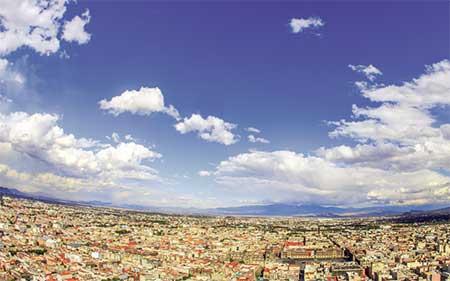Strategies for Mitigating Air Pollution in Mexico City

This report examines air pollution mitigation strategies in Mexico City. It identifies a series of measures that can strengthen current approaches to air pollution mitigation adopted in Mexico's capital as well as nationally. Recommendation include actions in policy areas such as emissions standards and testing, incentives for cleaner vehicles, fuel quality, inspection and maintenance, restrictions on vehicle use, parking regulation and speed limits, air quality plans, enhancement and promotion of sustainable transport modes as well as improving enforcement and public communication.
The publication assembles the findings of a workshop organised by the ITF and the Development Bank for Latin America (CAF) together with the Ministry of Environment of Mexico City (SEDEMA) in January 2017.
Policy Insights
- Consolidate the use of on-board diagnostic system checks in the mandatory vehicle inspection and maintenance programme.
- Adopt state-of-the-art emissions standards for heavy duty diesel vehicles without delay.
- Verify vehicle emissions in real world driving conditions.
- Continuously update the system of restrictions on vehicle use in the Metropolitan Zone of the Valle de Mexico and improve enforcement.
- Phase in a city-wide low emissions zone and consider road pricing.
- Differentiate the tax on vehicle ownership to provide incentives for cleaner cars.
- Introduce incentives for ultra-low sulphur diesel and gasoline at national level.
- Reduce speeds on motorways and ring roads.
- Manage parking more effectively.
- Improve sustainable transport alternatives to cars and taxis.
- Consolidate initiatives to integrate land-use and transport planning.
- Improve retrofit programmes with inspection, maintenance and quality certification.
- Introduce emissions regulations for off-road vehicles and mobile machinery.
- Invest more in communicating with the public on the development of new anti-pollution measures.